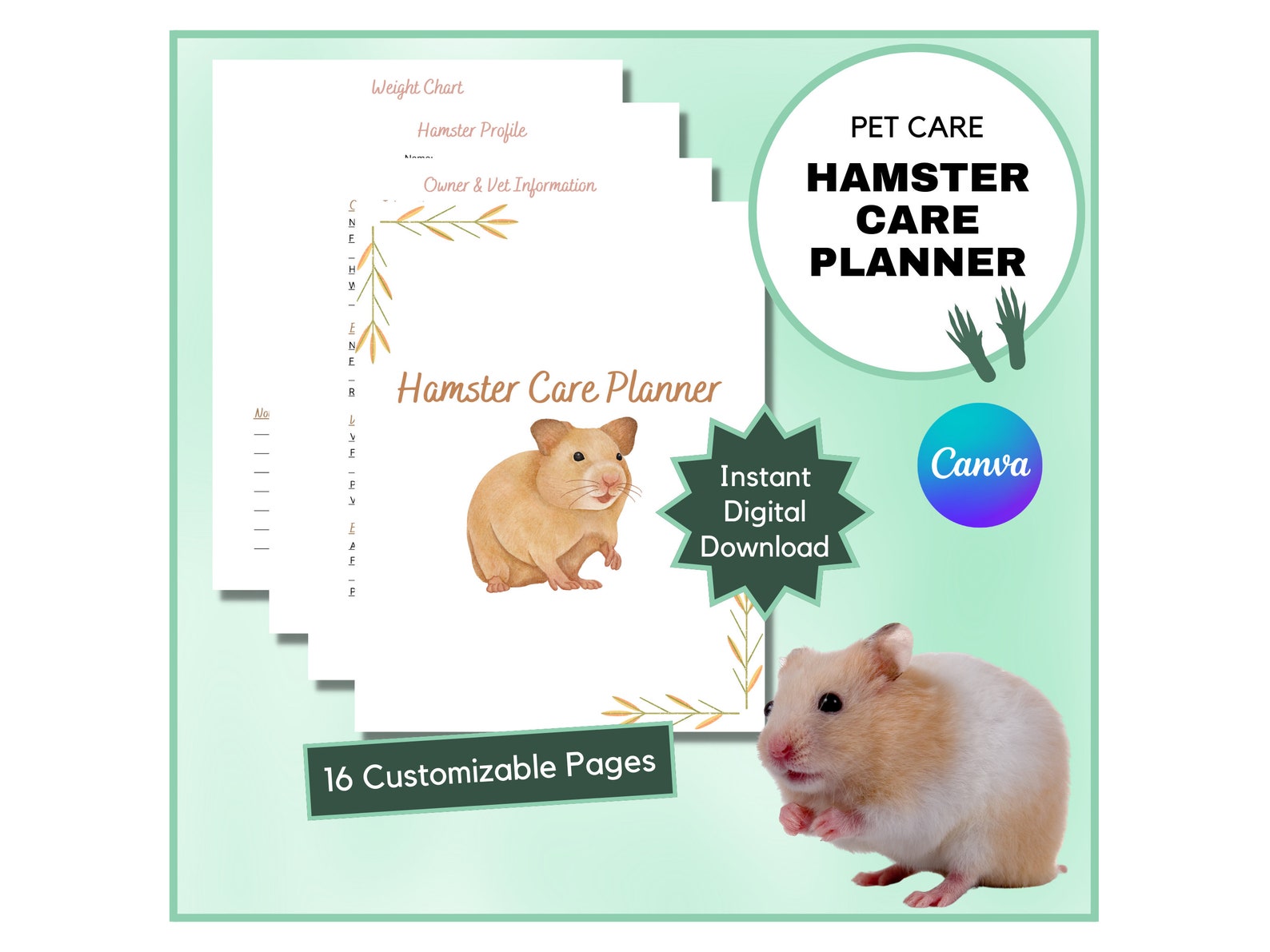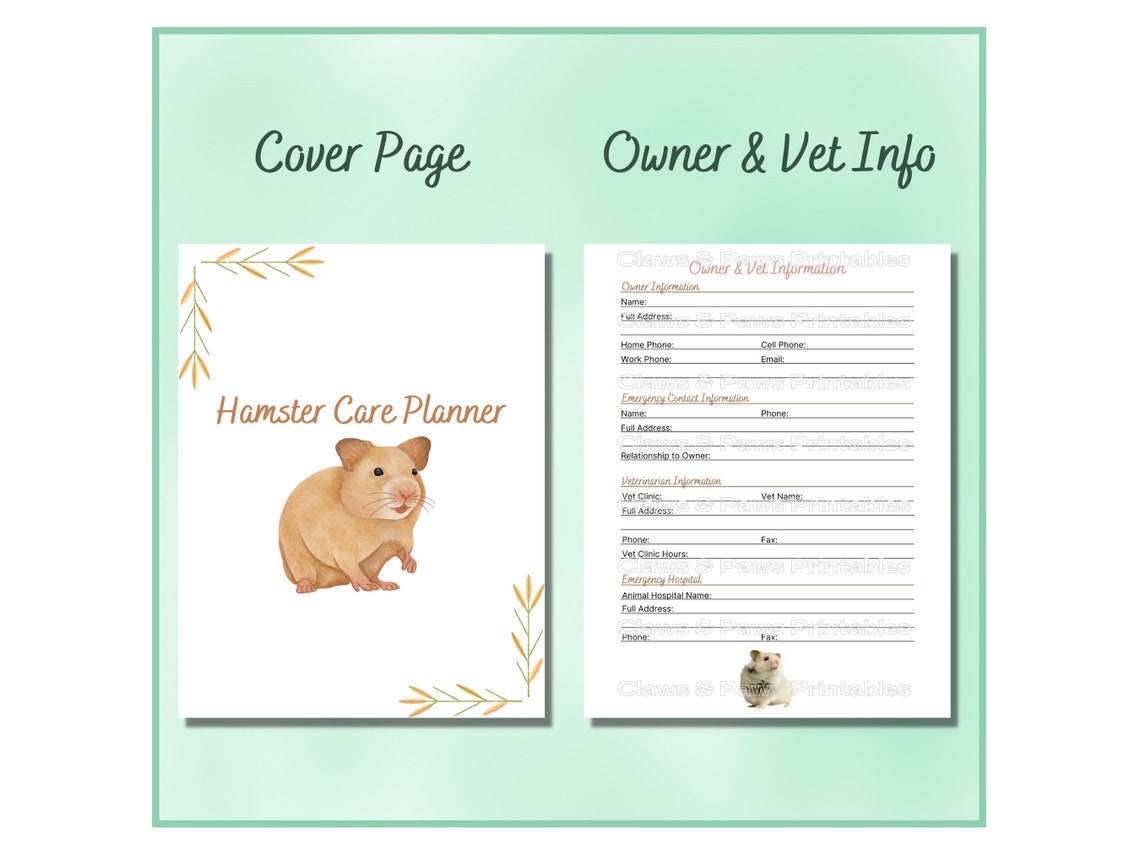Hamster Care Guide: Lifespan, Types & Tips
by Prof. Linnie Nicolas Sr. May 04 2025
Ever considered the captivating world of hamsters, those tiny, fluffy creatures that have stolen the hearts of pet lovers worldwide? This in-depth guide offers a comprehensive overview, covering every aspect of hamster care, from their origins and diverse types to their specific needs, ensuring you provide the best possible life for your furry friend.
Hamsters, with their endearing personalities and relatively low-maintenance care requirements, are a popular choice for both first-time and experienced pet owners. They bring joy to households, but understanding their needs is paramount. This guide dives deep into all the crucial aspects of hamster care, ensuring you're well-equipped to provide a happy and healthy life for your hamster companion.
Let's explore the fundamental aspects of hamster ownership, beginning with the basic question: what exactly defines a hamster? These small mammals belong to the subfamily Cricetinae, which comprises about 20 different species. Their origins lie in various parts of the world, with their natural habitats ranging from the arid steppes to grasslands. Understanding their origins is the first step in understanding their specific needs.
- Marc Christian The Untold Story Rock Hudson Scandal Legacy
- Hdhub4u Your Guide To Movies Streaming 2024 Latest Info
Hamster Types and Lifespans: A Comparative Overview
Different hamster species come with varying characteristics and lifespans. Understanding these variations is crucial for responsible pet ownership. Heres a comparative look at some of the most common hamster types:
| Hamster Type | Average Lifespan | Key Characteristics |
|---|---|---|
| Syrian Hamster (Golden Hamster) | 2-3 years | Largest common species; solitary; comes in various colors and coat types. |
| Dwarf Hamsters (Campbells, Winter White, Roborovski) | 1.5-3 years (varying by species) | Smaller; generally more social (though this varies); Campbells often prone to diabetes. |
| Chinese Hamster | 2-3 years | Unique appearance with a long tail; can be more social than Syrians but still requires individual housing. |
Reference: ASPCA - Poisonous Plants
- Julie Marie Pacino Al Pacinos Daughter Filmmaker Inside Story
- Movierulz Updates Reviews Your Guide To South Indian More
The lifespan of a hamster, while genetically determined, is heavily influenced by the quality of care they receive. Proper nutrition, a safe and stimulating environment, and regular health checks significantly contribute to a longer, healthier life. As mentioned, some hamsters can live up to 3.5 or even 4 years with optimal care, while others may experience a shorter lifespan if their needs aren't adequately met.
The Habitat: Building Your Hamster's Home
The cage is arguably the most critical element in hamster care. A well-designed habitat provides a safe haven and stimulates the hamster. The size of the cage should be appropriate for the type of hamster, with larger cages always being preferable. A cage with a solid bottom is ideal to prevent injury and is easier to clean than wire-bottomed cages. Be sure to use a cage that is well-ventilated, as this prevents a buildup of harmful gases.
The right bedding is vital. Paper-based bedding, such as shredded paper or cellulose, is generally safe, absorbent, and comfortable. Avoid cedar or pine shavings, as they can irritate the hamsters respiratory system. The bedding should be deep enough for burrowing, as hamsters enjoy digging and nesting.
Essential accessories for a hamster's habitat include a food bowl, a water bottle or dish, a hideout (like a small house or hut), and toys for enrichment. A solid-wheel exercise wheel is a must to allow the hamster to run safely. Avoid wire wheels to prevent injury.
The habitat should be placed in a quiet, draft-free area of the house, away from direct sunlight and extreme temperatures. Regular cleaning of the cage is essential to maintain hygiene and prevent disease. Spot-clean the cage daily, and thoroughly clean the cage once a week, changing out all bedding and washing accessories.
Diet and Nutrition: Fueling Your Hamsters Life
Hamsters need a balanced diet to thrive. A commercial hamster food mix forms the foundation of their diet, but it should be supplemented with fresh foods for optimal health. These mixes typically contain a variety of seeds, grains, and pellets. Aim for high-quality brands that are specifically formulated for hamsters.
Fresh vegetables and fruits should be offered in small amounts daily. Good choices include carrots, broccoli, spinach, apples (without seeds), and berries. Avoid sugary fruits and vegetables, as they can lead to health problems. Always remove uneaten fresh food after a few hours to prevent spoilage.
Protein is crucial. You can provide a small amount of cooked chicken, mealworms, or specially formulated protein supplements. Offer these in moderation.
Water is essential. A water bottle with a sipper tube is the most common method, ensuring a constant supply of clean water. Change the water daily and regularly check the bottle to ensure it is functioning correctly.
Treats can be offered in moderation. Commercial hamster treats can be used, but always read labels to avoid those high in sugar or unhealthy fats. Always provide clean water in a bottle or a dish.
Grooming and Hygiene: Keeping Your Hamster Clean and Healthy
Hamsters are naturally clean animals, and regular bathing is usually not necessary. Excessive bathing can stress your hamster and remove essential oils from their fur.
However, spot cleaning may be necessary if your hamster gets dirty. Gently wipe them with a damp washcloth or unscented baby wipes. Some hamsters enjoy a weekly dust bath, which helps keep their fur clean, dry, and less oily. Commercially available rodent dust is perfect for this. Place the dust in a shallow dish and let your hamster roll around in it. Avoid using sand, as it may be too harsh.
Regularly check your hamster's teeth, which continue to grow throughout their life. Providing chew toys is crucial for maintaining dental health. These can include wooden blocks, cardboard tubes, and specific hamster chew toys.
Nail trimming might be necessary. If your hamsters nails become too long, a pet nail clipper can be used. If you are unfamiliar with nail trimming, ask your vet for guidance.
Behavior and Enrichment: Keeping Your Hamster Happy
Hamsters are nocturnal creatures, most active during the evening and night. They have evolved with a keen sense of hearing and smell, which assists them in foraging and avoiding danger in the wild. Understanding their natural behaviors is vital for providing proper enrichment.
Provide a variety of toys to prevent boredom and promote activity. These could include tunnels, mazes, and chew toys. Change toys regularly to keep things interesting. Hamsters love to burrow, so ensure enough bedding for digging.
Spend time with your hamster daily, allowing them to interact with you. This can improve your bond and allow for socialization. Gentle handling from a young age helps. When handling your hamster, always be gentle and avoid sudden movements.
Hamsters have a natural instinct to hoard food. Provide a small bowl for food, and keep an eye on any hiding spots. This ensures the hamster has access to food at all times.
Health and Wellness: Ensuring a Long and Healthy Life
Regular veterinary check-ups are essential. Find a vet experienced with small animals and take your hamster for regular checkups to catch any potential health issues early. These checkups can involve a physical examination, dental checks, and other tests as needed.
Common health issues in hamsters include wet tail (a bacterial infection that causes diarrhea), dental problems (like overgrown teeth), and tumors. Familiarize yourself with the signs of these and other illnesses, such as changes in appetite, lethargy, changes in behavior, or any unusual discharge.
Quarantine new hamsters before introducing them to existing ones to prevent the spread of diseases. If you suspect your hamster is sick, consult a vet immediately. Early detection and treatment are critical.
Ensure the cage is kept clean to minimize the risk of illness. Proper nutrition is important for maintaining a strong immune system. Provide fresh water to prevent dehydration, which can exacerbate health issues.
Embracing the Joy of Hamster Parenting
Caring for a hamster is a rewarding experience. They bring joy to many households, and with a little effort, you can create a stimulating and safe environment for your hamster to thrive. Embrace the joy of hamster parenting with the knowledge you have gained in this guide.
Remember that understanding hamster behavior and requirements will make you a confident and responsible pet owner. From learning the intricacies of providing the best cage environment to providing a balanced diet, you will be well on your way to providing the best life possible. Comprehensive hamster care involves continual learning and a dedication to your hamster's well-being.
There is plenty to learn to make sure you can handle the joys, and possible challenges that might arise.
A Comprehensive Guide to Further Exploration
This guide provides a comprehensive introduction to hamster care, but there is always more to learn. Research, reading, and connecting with other hamster owners can enrich your knowledge further. There are many online resources, forums, and books dedicated to hamster care, providing valuable tips, advice, and insights.
Remember that every hamster is unique. Observe your hamster's behavior, and adjust your care routine to meet their individual needs. This will help you to create a happy, healthy environment.
Explore the fascinating world of hamsters lifespans in this detailed post. Dive into genetic factors, dietary needs, and common health issues that influence their longevity. Featuring comparison tables and infographics, other blogs offer a comprehensive guide to enhance your hamster's lifespan through proper care and nutrition.
By following the recommendations and keeping your hamsters best interests at heart, you can ensure many years of companionship, happiness, and joy.
It is up to you to use this information to provide the best care for your hamster.



Detail Author:
- Name : Prof. Linnie Nicolas Sr.
- Username : ekeebler
- Email : goyette.edwin@davis.org
- Birthdate : 1988-09-25
- Address : 16783 Rick Bridge South Arvillaview, NJ 05614-2202
- Phone : 1-818-852-2610
- Company : Dibbert Group
- Job : Aircraft Structure Assemblers
- Bio : Est dignissimos sit autem in. Esse deleniti aut voluptates laboriosam. Eveniet aut aperiam repellendus veniam perspiciatis sit.
Socials
tiktok:
- url : https://tiktok.com/@cary_harber
- username : cary_harber
- bio : Nihil quidem magni ut et quia voluptates esse.
- followers : 451
- following : 1338
facebook:
- url : https://facebook.com/harberc
- username : harberc
- bio : Impedit nulla non consectetur fugit neque qui quod.
- followers : 847
- following : 2762
twitter:
- url : https://twitter.com/cary_real
- username : cary_real
- bio : Et porro cupiditate laborum dolores. Velit odio est in. Ipsum est reprehenderit sapiente eaque quo nobis.
- followers : 3807
- following : 1355
linkedin:
- url : https://linkedin.com/in/charber
- username : charber
- bio : Iste numquam aut perspiciatis qui ut.
- followers : 6181
- following : 997